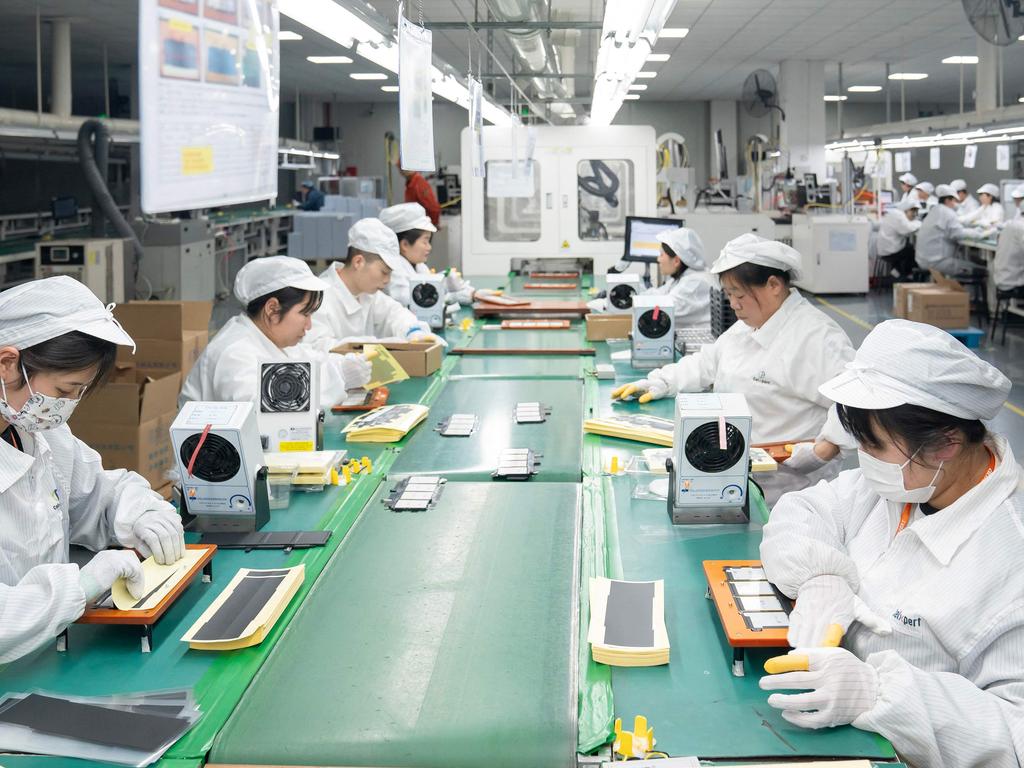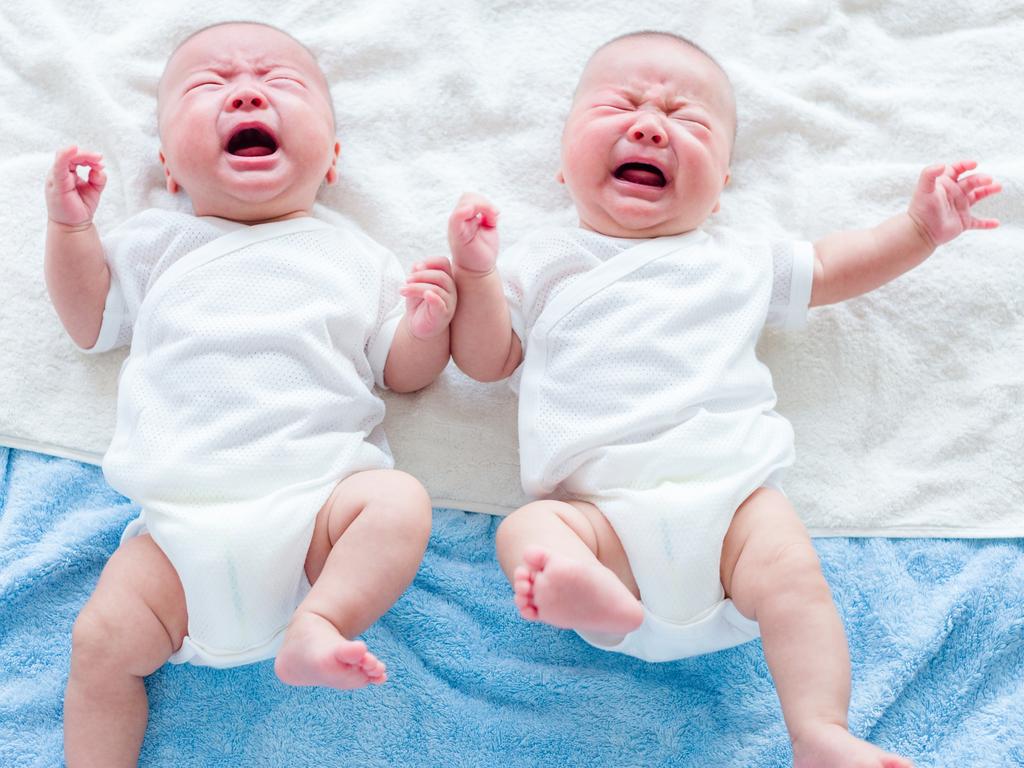China’s birthrate plummets as ‘illegal’ pregnancy tests spark outrage
China’s gender struggles have manifested in a crisis as the nation is gripped by ongoing scandals.
There aren’t enough young Chinese women. They aren’t getting married. And the nation’s birthrate has gone off a cliff.
So, demanding illegal pregnancy tests of female job seekers probably isn’t a good idea.
And yet, according to the South China Morning Post (SCMP), it’s a real problem.
The Chinese Communist Party-controlled news service reports 16 companies in the Jiangsu Province city of Nantong are being pursued for the offence.
Investigations revealed the companies, including two hospitals and a medical centre, had demanded tests from 168 job applicants. At least one was refused employment on the basis of being pregnant.
The women had not been given official written notice the tests were to be conducted.
Instead, they were “given deliberately vague oral warnings”.

“We can speculate from this evidence that the pregnancy tests were required by these companies, and it had violated women’s rights to equal work opportunities,” the prosecutors said.
“Many companies are suspected of discriminating against women in less obvious ways, including not paying salaries in full when women are on maternity leave,” the SCMP adds.
The scandal comes as Beijing struggles to come to grips with exploding youth unemployment, collapsing property prices and shrinking consumer demand.
And a dramatically changing population.
It’s getting older. Fast.
And the younger generations – especially women – aren’t interested in picking up the pieces.
Misogyny is still deeply ingrained in Chinese cultural, political and employment processes.
And this is being compounded by a ballooning cost of living.
So young women are simply saying “no”.
Spouse shortage
China’s women are finding themselves under immense pressure.
But also potentially holding unprecedented power.
Last October, Chairman Xi Jinping abandoned the long-held Communist principle of gender equality. Instead, he called on women to focus on the Confucian ideal of “heroic motherhood”.
“Only with harmonious families, good family education, and correct family traditions can children be raised and society develop in a healthy manner,” Xi proclaimed.
Earlier this year, the National People’s Congress promised to find new ways to boost falling birthrates. But the problem is urgent.

China’s births fell from 17.86 million in 2016 (the year the One Child Policy ended) to just 9.02 million in 2023. And that year produced a population decline of more than two million.
It’s a trend the United Nations expects will lead to China contracting from 1.4 billion to 800 million by the end of the century.
Beijing’s “one-child policy” ended in 2015. But more than three decades of harsh enforcement dramatically skewed the nation’s attitudes and demographics.
Forced sterilisations.
Coercive abortions.
Financial and social punishment for having a second child.
Initially, these were good for the State.
It brought a ballooning population under control. It produced a “bubble” weighted towards a large working-age population.
But that bubble is now ageing.
Chinese culture also traditionally places greater significance on the birth of a male. As a result, there are currently 17.5 million more men aged between 20 and 40 than women.
And these young women are embracing the freedom to pursue education, careers, and happiness.
That means few are in a rush to get married.

In 2010, the average age for a woman to tie the knot was 24. By 2020, it was 28. Now, it’s reportedly topped 30.
“More than 30 years of birth control deeply affected the socialisation of new generations, who mostly grew up as only children,” argues Italian Institute for International Political Studies analyst Gabriele Manca.
“As China tries now to reverse the demographic decline by encouraging more births, the goal is proving to be more difficult than expected.”
Social engineering
“We need to … guide women to play their unique role in carrying forward the traditional virtues of the Chinese nation, establish a good family tradition, and create a new trend of family civilisation,” Chairman Xi recently told the party’s All-China Women’s Federation.
The problem, he believes, is Chinese women.
They have embraced Western beliefs. They put themselves before the good of the party.
Beijing is recognising the urgency with which it needs to act.
Fewer babies already means obstetrics departments and services are closing.
Schools and childcare will be next in line.
Then, universities, entertainment and apprenticeships.
Eventually, the real estate and household commodity markets will dry up.
As will tax revenue.
But the CCP is grappling with how to address this looming economic cliff.
And how to process the unexpected fallout of its own rigidly enforced ideology.
“To prompt the one-child policy, the party launched a massive education campaign on contraception to control fertility,” argues Manca.
“As a result, the link between sex and fertility has been broken at the national level, justifying sex for pleasure.”
And a modernised economy means a population of modern consumers.
This has produced two broad trends in Chinese feminism, she adds.
Entrepreneurial Feminism: Where the traditional self-sacrificing role of the stay-at-home wife and mother has been rejected and replaced by a desire for economic independence and shared marital burdens.
Non-cooperative Feminism: Which pursues sexual and economic autonomy without the need for marriage.
A 2021 survey found 40 per cent of women aged between 18 and 26 were choosing not to marry or were uncertain if they would. Only 19 per cent of males said the same thing.
The CCP has, in recent years, attempted to correct this unanticipated expression of female freedom by making it more difficult to secure a divorce. This, however, has only made the idea of getting married even less appealing.
“It seems that the CCP has unleashed certain forces that it is having difficulty managing,” Manca writes for The Diplomat. “All these forces are leading toward a decrease in the country’s birthrate, which could prove disastrous.”

Unhappy wife, unhappy life
In-laws. Infighting. Infidelity.
China’s internet censors have cancelled hundreds of online dramas for over-emphasising the “negative aspects” of family life.
“Many micro-dramas on this theme deliberately amplify and exaggerate conflicts between husband and wife, conflicts between mother-in-law and daughter-in-law, and intergenerational conflicts through eye-catching stereotypes and abnormal and bizarre relationships,” a Communist Party censorship agency post proclaimed earlier this year.
Instead, it wants Chinese women to regard marriage as the ultimate expression of ideological bliss.
Chairman Xi, whose 24-member Politburo inner sanctum has no woman for the first time in decades, is calling on young women to “mobilise” for the good of the party.
“We need to actively cultivate a new culture of marriage and child-bearing,” Xi said, adding this could be done by “guiding young people’s views on marriage and child-bearing”.
He’s already made a start.
Late last year, popular female journalist and #MeToo movement reporter Sophia Huang was jailed for “incitement to subvert state power”.
Censorship of politically undesirable ideas is the easy first step.
But Beijing is contemplating following up on this with policy adjustments.
Flexible working hours for families?
Fertility treatment insurance cover?
State-supported egg freezing?
It already offers subsidised childcare and has made maternity leave mandatory.
That leave, however, may be behind the recent trend towards job-applicant pregnancy tests.
More Coverage
The SCMP reports employers are increasingly concerned about having to pay staff for six months of maternity leave.
This financial reticence puts them at odds with the Communist Party.
After all, as Chairman Xi declares: “The role of women in the great cause of national rejuvenation is irreplaceable.”






